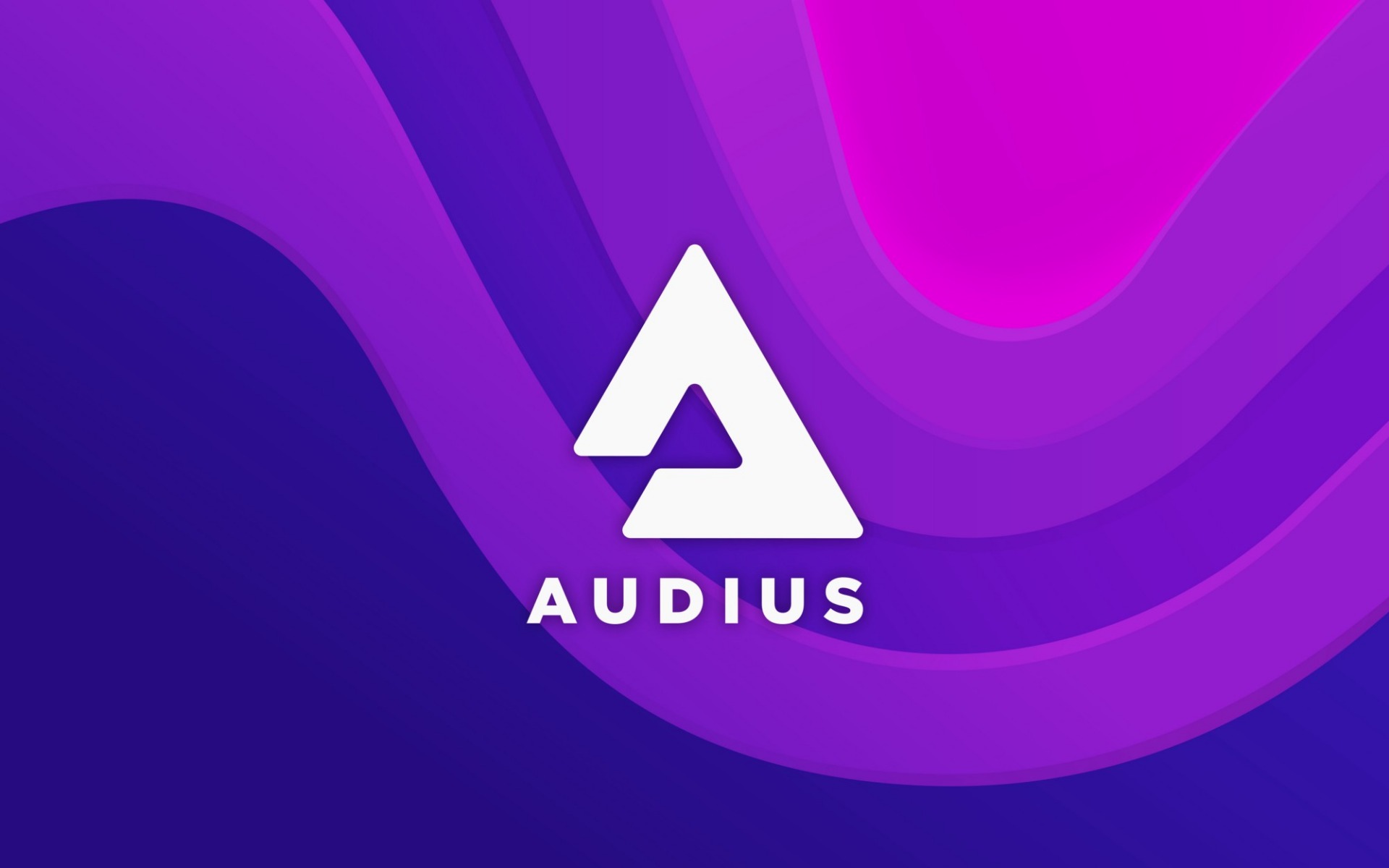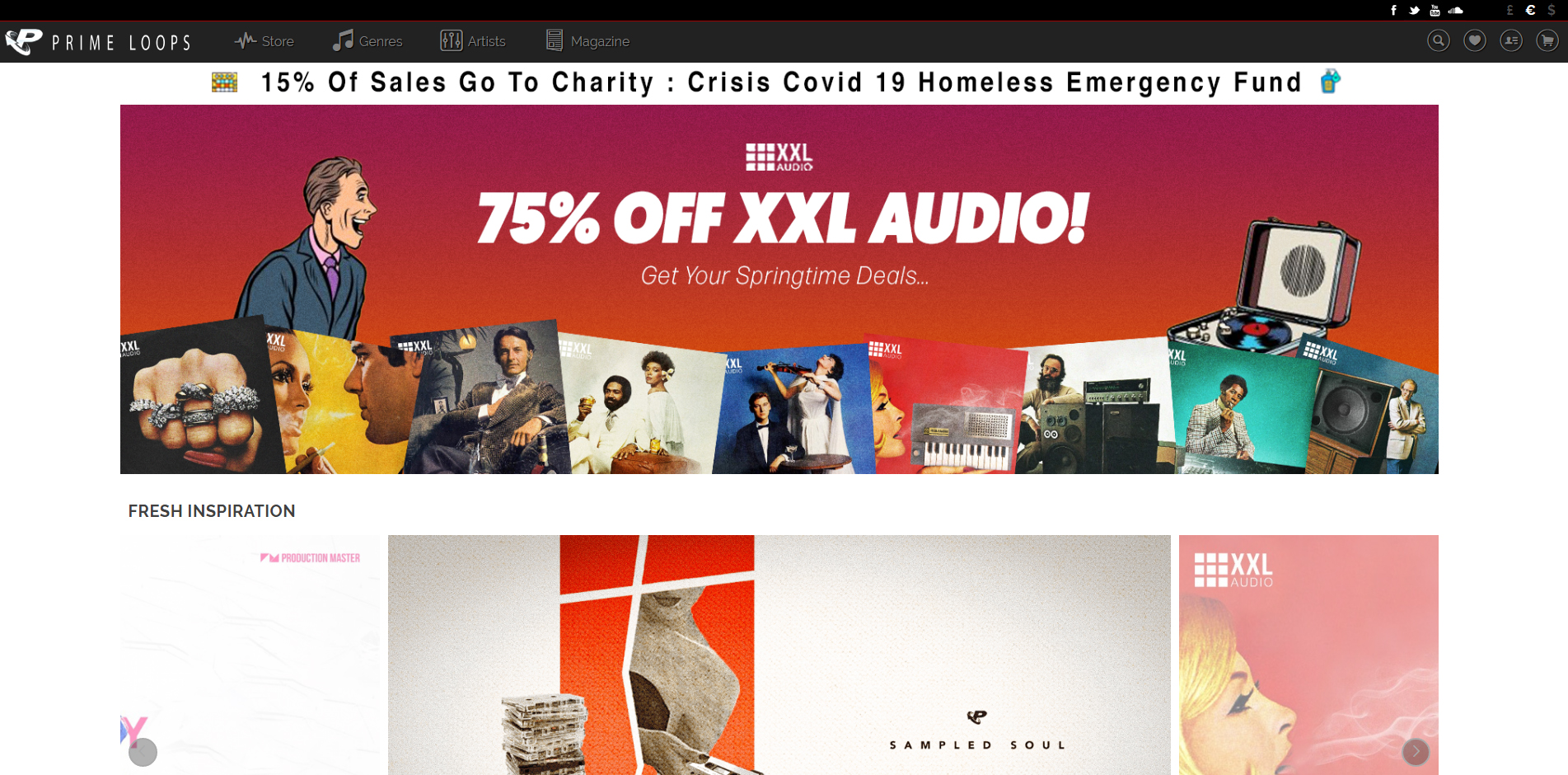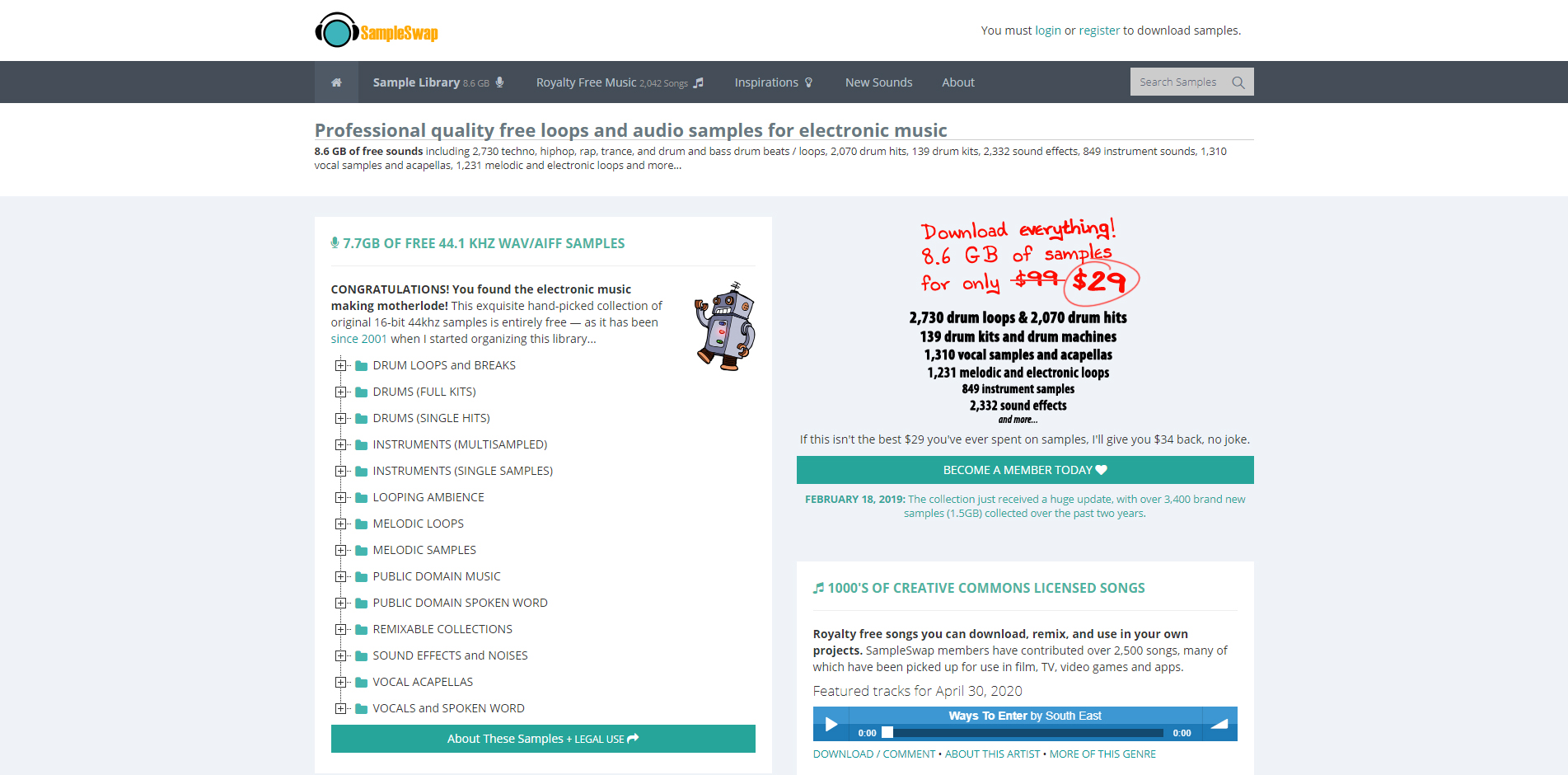
A Big List Of Places Where You Can Get Samples For Your Beats

Despite what some people might say, sampling has always been an undeniable part of music-making, since... well... since it got technically possible to sample. But especially when you're an impatient person like me, the process of searching for samples can sometimes get a little frustrating, and even more if you don't even know where to look.
To help you (and myself) with this problem, I've made a big list of places to get ya'all inspired. Don't take this as something like "definitive guide for 2020", tho - this blog post is only meant to give you the initial kick, but I can guarantee you that if you go beyond that list and get digging yourself (the "Further Reading" list is a good start), you will find a lot of other interesting places to get samples from (or ways of recording them yourself).
Subscription-based Sample Banks
The most convenient way to find new samples is indeed using a subscription-based sample bank like Splice, Loopcloud, or Sounds. Arguably, those three I just mentioned are nowadays the biggest players in the sample market. The biggest advantage of these services is that they allow you to easily filter their whole database counting hundreds of thousands of sounds in order to find exactly what you need for your project - and then to buy that sample separately for a fraction of a dollar, instead of having to spend big money on whole sample packs, half of whose content you won't even ever use in your production. The obvious disadvantage for some people can be the subscription-based pricing model, and also, you have to be cautious sometimes as it's easy to end up using exactly the same "popular" sounds as other producers who use these services.
Splice Sounds
Splice was the first big subscription-based sample bank to emerge on the market that has only been used to selling and buying sample packs before, effectively disrupting this old and inconvenient model with all the aforementioned advantages. It was basically a small revolution. What I personally love about Splice the most is their website's interface and the ways in which you can filter all the samples. It all feels really clean and intuitive to use, despite some parts (like "favorited" samples, etc.) still have a lot of space for improvements. But what counts is that the system of the filters and tags allows me to quickly find exactly the kind of sound I need at the moment without having to spend too much time going through a lot of irrelevant samples. A cherry on top is their Rent-to-Own program allowing producers to pay for VST plugins on a monthly basis (until the whole price is met and the plugin gets fully yours), instead of having to spend a lot of bucks on one time purchases.
Loopcloud
Loopcloud is what I see as the most progressive service on the market right now. Owned by Loopmasters, Loopcloud has one big advantage to start with - the massive collection of high-quality Loopmasters samples you will no longer find anywhere else, often coming from sample packs put together by famous producers, Another big difference to Splice is that Loopcloud is available only as a desktop app, not having a web interface. This, however it might seem inconvenient for some use cases, allows them to incorporate functionality, that would be almost impossible to do in the browser - and it's absolutely worth it! The app basically lets you edit those samples almost like in a DAW - you can change the pitch of the sample or its BPM, you can even edit the sample itself (like splitting it, cutting out or muting its parts), but the biggest mindfuck is that you can actually add a whole FX chain, and all that without even having to buy the sample first. The only thing that personally prevents me from absolutely falling in love with Loopcloud is the UX of the app, which feels quite cluttered and clumsy compared to Splice, unless you have a fairly big screen.
Sounds
Sounds.com is a Native Instruments' attempt to break into the subscription-based sample bank market. It has some unique features like seamless integration with other Native Instruments products (like Maschine or Komplete Kontrol), but in other ways, it kinda falls behind its competitors. The possibilities of filtering the database of sounds feel very limited compared to Splice and Loopcloud (or maybe there are some filters hidden so well in the interface I just didn't find them), and for me, this is a big flaw as it makes you spend more time looking for the samples instead of saving you time and leaving you more of it for the beat-making itself. But if your workflow relies heavily on Native Instruments' ecosystem, it might be worth giving a shot.
Sample Pack Selling Sites
No matter how revolutionary the approach of subscription-based sample bank was, it didn't make the old model based on selling whole sample packs go away at all. It's still here with us and there is a lot of sites who are able to make a good business out of it. So let's take a look at some of them - I bet those names will ring a bell for a lot of you.
Cymatics
Cymatics is without doubts one of the most recognized production brands, having hundreds of various sample packs in their portfolio. With their strong marketing on social media, they are kinda hard to miss anyway. Their sample packs are very popular amongst producers, which is a good reference on one side, but on the other hand, there's again the danger of spending your money on samples that a lot of producers already used before you.
ADSR Sounds
I can't help myself, but to me, ADSR just feels like Cymatics' sibling. Those two platforms feel basically the same considering the type of content they offer, so if you deem Cymatics worthy checking out, you might as well check out also what ADSR has to offer.
Producer Loops
Producer Loops used to be maybe the biggest sample pack market place at certain times, and even after having a lot of their catalog taken away after the other companies started to sell their samples exclusively via their own platforms and shops, it's still quite impressive and well worthy spending a few minutes of your time to take a closer look.
Loopmasters
Okay, it's maybe a bit unfair to mention Loopmasters twice, but it would be also a shame not to mention that aside from Loopcloud, they still run their original sample pack business at Loopmasters.com. Especially if you're one of those people who don't favor subscriptions for getting samples, this might be good news for you.
Prime Loops
Another big and recognized name amongst the sample pack production companies, winning the hearts of their fans with their top-quality samples and actually being favorited by an impressive range of top-tier music industry stars. And by the way, guess which sample packs are trending on their homepage right now. Yeah - it's almost all lofi hip hop.
8DIO
Now, this is something for those harder to please, but if you like to get all epic with your production, 8DIO might be the right place to look. And what's a better proof of quality than discovering, that their sound packs are featured in the majority of current blockbusters (ex. Avatar, James Bond Series, Interstellar, Avengers Series, Dark Knight Trilogy, Transformers Series, District 9, Thor), TV-shows (ex. Game of Thrones) and video games (ex. World of Warcraft series, Diablo 3, COD Series, Starcraft 2, Need For Speed series, DOTA, etc).
Big Fish Audio
Lastly, I shouldn't forget about the Big Fish Audio. They are well known for making high-quality virtual instruments, but they also sell hundreds of sample packs including some high profile brands (like Loopmasters).
Free Sample Banks
Some of us don't have the luxury to afford paying dozens of bucks for whole sample packs or monthly subscriptions. But luckily, there's still a ton of free-to-download content you can use without having to lose a single penny and despite those websites are not that well designed and sometimes they're a bit harder to use than their commercial alternatives, they can still save the poor man's day.
Looperman
Looperman is one of the oldest websites with free samples, but even after all those years and despite being terribly outdated, it's still alive and well, offering more than 150 000 free sounds for anyone to download. The site's content is entirely community-driven, so expect also a lot of weird, low-quality stuff you will have to go through in order to dig up some diamonds, but that's the price for not paying any other price.
SampleSwap
If ADSR feels like Cymatics's sibling to me, then SampleSwap is a Looperman's one. SampleSwap is turning 20 years next year and you can definitely tell it's not a young one just by peeking its homepage. But then - 8.6 GB of free sounds including 2,730 techno, hip hop, rap, trance, and drum and bass drum beats/loops, 2,070 drum hits, 139 drum kits, 2,332 sound effects, 849 instrument sounds, 1,310 vocal samples and acapellas, 1,231 melodic and electronic loops and more (and still counting) - that still sounds interesting, doesn't it?
Other Options
So far, I've been only talking about platforms and services that were intentionally built to provide people with samples. But there's a whole universe of other places full of interesting sounds and ways to record your own, so let's go over a few of them, too!
YouTube
Let's start with the most obvious one. Producers have been using (and abusing) YouTube to get samples since the very beginning, and there's a reason behind that. Particularly for making beats, it can be very convenient, as it's really easy to find endless masses of beautiful instrumental music you can sample and chop to your likings, no matter if you're more into the piano, guitar, or some obscure Japanese string instruments. YouTube has it all, just waiting for you to fill in that search field and start digging. But obviously, this is in fact stealing, so if you intend to officially release your beats with samples from YouTube, you should chop them rather creatively so you don't have to deal with takedowns later.
If something exists, you will probably find it on Reddit, and free samples are no exception. The Reddit's community of musicians and producers shouldn't be underestimated - it's huge and it's awesome. If you give that Reddit's search field a go, you might also end up very pleasantly surprised.
NASA's SoundCloud
Are you a fan of all things space? Then say no more - NASA's SoundCloud is full of their original and unique recordings. If you dig deep enough, you might as well find the famous "Houston, we have a problem" transmission or Neil Armstrong's words "One small step for (a) man, one giant leap for mankind", as well as a lot of way more obscure, otherworldly sounds that literally came from the deep space. Just note that all those samples fall under the Creative Commons license, requiring proper attribution, but I believe that a little sample here and there will do NASA no harm.
BBC Sound FX Archive
If you're more down to earth type of a guy (or girl), you might actually rather prefer the BBC's Sound Archive. It's like heaven on earth for all the producers looking for some sound effects to use in their music - the library feels almost endless with so many various effects that you can get lost in them quite easily. Unfortunately, those are not royalty-free samples, so you should be rather sneaky with 'em.
The "most DIY" ways
So far we have been talking only about buying/downloading samples from the internet, but let's not forget that you can also sample your own sounds without having to rely on the work of others, and without having to worry that somebody else will use the same sample as you. Plus, at the end of the day, making your own samples "with your bare hands" can feel incredibly rewarding and accomplishing.
Sampling old records (vinyl/cassettes)
The most traditional, old-school way of DIY sampling is literally crate-digging in a boutique music shops and then sampling those diamonds you dug up. I'd say that apart from old-school, it's also the most "romantic" way of sampling. In a world of DAWs and sample banks, having to go for a walk to the nearest vinyl shop in order to get samples is something not everyone is willing to do. However, this approach obviously requires you to have the proper hardware at your disposal, such as a turntable or a walkman, and also a way to record their audio output digitally.
Recording your soundcard's output / capturing your desktop sound
This is probably one of the most DIY ways of getting your own samples using just your computer, but it also gives you the most freedom, as you can basically record EVERYTHING that goes through your sound card, let it be a speech from a movie, a broadcast from internet radio, a track playing on Spotify, your friend singing on Skype, a sound playing in a Facebook video, a porn star moaning in a PornHub one... I guess you can now see all those shiny new opportunities. However, this one might require some technical skills and a bit of work to set it up (and to get around eventual limitations of your system and hardware). Anyway, if you're interested, stay tuned, as I'm gonna dedicate a whole another blog post to this topic - don't forget to sign up for my newsletter if you wanna make sure you don't miss it ;)
Recording your own sounds using a handheld recorder
And lastly, I couldn't forget to mention using a handheld recorder device like all those Tascams or Zooms and getting wild around with all the sounds you can record around your house - or basically everywhere. This method is perfect for capturing your own unique textures, foley, percussion but also musical instruments and a lot of other stuff, and it's not even that hard to learn how to work with those devices properly to get the best results. But again - this is a bit broader topic to cover in such a short paragraph, so you can expect a full-fledged article about recording your own sounds with handheld recorders to pop up here on the blog in the near future.
Further Reading:
- Best Websites To Buy Royalty Free Sample Packs
- How To Find High-Quality Samples for Music Production (and top 4 sites)
- The best free music samples and loop download sites on the web
- The best sites for free samples and loops to download
- 6 best sites for free samples
- Where to Download Sample Libraries for FREE!
- 5 Places You Can Download Quality Samples for Free

First time on my blog?
Welcome! My name is Pao and I'm the person behind this whole website. Besides making music myself whenever I can, I also write this blog and curate Spotify playlists. Feel free to explore it here a bit - I believe you will find some interesting stuff around ^^






















